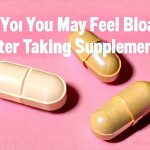Probiotics have exploded in popularity as awareness around gut health grows, and for good reason. They’re often touted as a miracle cure for everything from digestive issues to boosting immunity and even influencing mental wellbeing. However, many people are surprised – and frankly, discouraged – when they first start taking probiotics, experiencing symptoms that seem entirely counterintuitive: bloating, gas, changes in bowel habits, or even temporary fatigue. This initial worsening can lead people to abandon what could be a truly beneficial supplement, believing it simply isn’t working for them. Understanding why this happens is crucial to navigating the probiotic journey successfully and reaping its potential rewards.
It’s important to remember that introducing probiotics into your system is essentially initiating a shift in your gut microbiome – a complex ecosystem containing trillions of microorganisms. Think of it like landscaping: you’re not just adding plants (probiotics); you’re disrupting an existing environment. This disruption, while ultimately aiming for a healthier balance, can create temporary turbulence as different microbial populations vie for dominance. The “die-off” effect, where established less-than-ideal bacteria are displaced, also plays a role and contributes to these initial symptoms. It’s rarely a sign that probiotics aren’t working; it’s often a signal they are working, albeit with some temporary discomfort.
What is Happening in Your Gut?
The gut microbiome isn’t static. It’s influenced by countless factors – diet, stress, antibiotics, lifestyle, and genetics. For many people, an imbalance exists called dysbiosis, where harmful bacteria outnumber beneficial ones. Probiotics aim to restore balance, but the process is rarely smooth. When you introduce probiotic strains, they begin to colonize (or attempt to colonize) your gut. This colonization isn’t instantaneous and depends on factors like the specific strains used, their viability (how many are alive when consumed), and your individual gut environment. As beneficial bacteria increase, they can directly compete with existing harmful bacteria for resources and space.
This competition triggers what’s often referred to as a “microbial shift.” Existing populations of undesirable microbes may temporarily proliferate as they attempt to maintain their foothold, leading to increased gas production (from fermentation) or changes in bowel movements. Furthermore, some bacteria – when killed off – release toxins that can contribute to temporary symptoms like fatigue, headaches, or even mild skin reactions. This is the “die-off” effect mentioned earlier, also known as Herxheimer reaction (though this term is more often associated with Lyme disease treatment and its application to probiotics isn’t always accurate). It’s a sign your body is detoxifying.
Finally, your digestive system may need time to adjust to processing different types of bacteria. If you’re not accustomed to consuming fermented foods or probiotic-rich sources, the sudden introduction of these microbes can temporarily overwhelm your gut and lead to bloating or discomfort. This initial phase is usually temporary, lasting anywhere from a few days to a couple of weeks, but understanding its causes can help manage expectations and prevent unnecessary discontinuation. If you find yourself struggling with these symptoms, it may be helpful to understand reflux from water as well, since gut issues can manifest in various ways.
Navigating the Initial Discomfort: Strategies for Success
The key to minimizing probiotic-related side effects isn’t necessarily avoiding them altogether (some discomfort may be unavoidable), but rather managing them effectively. Start slow is perhaps the most important piece of advice. Don’t jump into a high-dose probiotic right away. Begin with a low dose and gradually increase it over several weeks, allowing your gut to adapt. Look for probiotics that contain multiple strains – diversity is often more beneficial than focusing on a single strain. Different strains have different functions, and a diverse blend can help create a more resilient and balanced microbiome.
Diet also plays a crucial role. While taking probiotics, focus on feeding the good bacteria with prebiotic-rich foods. Prebiotics are essentially food for probiotics and include things like onions, garlic, bananas, asparagus, oats, and apples. Avoiding highly processed foods, sugary drinks, and excessive alcohol can also help minimize inflammation and support a healthier gut environment. Hydration is paramount – drinking plenty of water helps move things along and prevents constipation, which can exacerbate bloating or discomfort. Finally, if symptoms are particularly bothersome, consider cycling probiotics: taking them for a few weeks, then taking a break to allow your gut to stabilize before resuming. If you’ve recently switched to veganism and are experiencing digestive issues, probiotics can be especially helpful during the transition.
Understanding “Die-Off” Symptoms
As mentioned earlier, the die-off effect is a common reason why people feel worse when starting probiotics. It’s not always pleasant, but it’s often a sign of progress. Common symptoms include: – Fatigue – Headaches – Skin breakouts (rashes, acne) – Muscle aches – Nausea – Digestive upset (gas, bloating, diarrhea) These symptoms typically indicate that harmful bacteria are being eliminated and their toxins released into the system.
The intensity of die-off symptoms can vary significantly depending on individual factors like gut health prior to starting probiotics, the types of strains used, and overall health status. It’s important to distinguish between typical die-off symptoms and signs of an allergic reaction or adverse effect. If you experience severe symptoms like hives, difficulty breathing, or persistent vomiting, discontinue use immediately and consult a healthcare professional. Supporting your body’s detoxification pathways during this phase can help mitigate symptoms. This includes staying hydrated, getting enough sleep, reducing toxin exposure (e.g., minimizing processed foods), and considering liver support supplements (under the guidance of a healthcare provider). You might also experience nausea as part of this process, which can be managed with specific strategies.
Choosing the Right Probiotic for You
There’s no one-size-fits-all probiotic. The best choice depends on your individual needs and health goals. Different strains have different properties, so it’s crucial to select a product that addresses your specific concerns. For example: – Lactobacillus rhamnosus GG is well-studied for supporting immune function and reducing diarrhea. – Bifidobacterium infantis can be helpful for managing symptoms of Irritable Bowel Syndrome (IBS). – Saccharomyces boulardii is a yeast probiotic effective against antibiotic-associated diarrhea.
Look beyond the marketing hype and pay attention to the details on the label. Check for colony forming units (CFUs) – this indicates the number of live bacteria per dose. A higher CFU count isn’t always better; it’s more important to choose strains that are well-researched and appropriate for your needs. Also, ensure the product is from a reputable brand that guarantees potency and viability throughout its shelf life. Consider consulting with a healthcare professional or registered dietitian who can help you identify the most suitable probiotic based on your individual health profile. Understanding stomach conditions and their relation to gut health is important when choosing a probiotic.
When To Seek Professional Guidance
While temporary discomfort is often part of the process, there are times when it’s essential to seek professional guidance. If symptoms persist beyond two weeks and are significantly impacting your quality of life, don’t hesitate to consult a healthcare provider. Similarly, if you experience any signs of an allergic reaction (hives, swelling, difficulty breathing), discontinue use immediately and seek medical attention.
Individuals with compromised immune systems or underlying health conditions should also exercise caution when starting probiotics and consult with their doctor first. Probiotics are generally considered safe for most people, but they aren’t a substitute for proper medical care. A healthcare professional can help rule out other potential causes of your symptoms and ensure that probiotics are appropriate for your individual situation. They can also provide personalized recommendations on dosage, strains, and timing to optimize results while minimizing side effects. Remember, proactive communication with your healthcare team is the best way to navigate any health concern safely and effectively. If you struggle with digestive issues when traveling, consider how motion sickness might be contributing to your symptoms as well. Finally, if you have colon polyps, discuss probiotic use with your doctor.


















